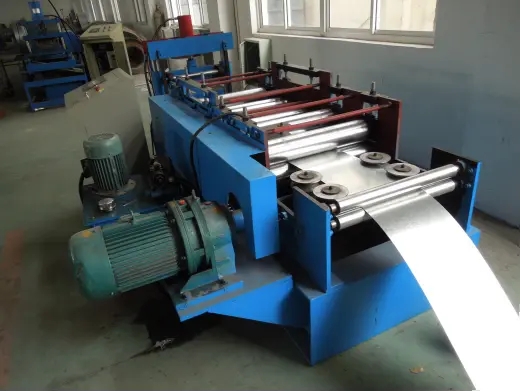
Understanding Gypsum Channel Machines Innovations in Construction and Manufacturing
Gypsum channel machines play a pivotal role in the construction and manufacturing industries, particularly in the production of drywall and plasterboard. These specialized machines are engineered to create precise gypsum channels that form the backbone of many interior and exterior structures. As the demand for lightweight, fire-resistant, and sustainable building materials grows, understanding the functionality and importance of gypsum channel machines becomes increasingly vital.
At its core, a gypsum channel machine is designed to produce channels or strips used in conjunction with gypsum board to provide structure and support. The machine automates the process of cutting, shaping, and sometimes even coating gypsum materials, which can significantly increase efficiency and reduce waste in production. These machines vary in complexity and design, with some models offering advanced features such as digital control systems and integrated quality control mechanisms.
The operational efficiency of a gypsum channel machine begins with its raw material handling. Typically, gypsum is processed into a fine powder, which is then mixed with water and additives to form a slurry. This mixture is poured into molds to form sheets, which can later be cut into specific dimensions. The use of a channel machine streamlines this process by ensuring that the gypsum is evenly distributed and precisely shaped, essential for maintaining the integrity and strength of the resulting products.
One of the most significant advantages of using gypsum channel machines is the reduction in labor costs. Manual production processes are not only time-consuming but also prone to errors. With automation, manufacturers can achieve higher consistency in the dimensions and quality of their products, thereby reducing the likelihood of defects. This efficiency is particularly crucial in large-scale construction projects where time and precision are critical.

Moreover, the lightweight nature of gypsum building materials contributes to sustainable construction practices. Gypsum channel machines produce components that are easy to handle and install, which can minimize the overall weight of the structure. Lighter materials can lead to lower transportation costs and energy savings during the construction phase. Additionally, gypsum itself is a naturally occurring mineral that is abundant and can be recycled, aligning with the growing push for sustainable building solutions.
In terms of design flexibility, gypsum channel machines allow for the production of various channel widths and profiles to meet specific architectural requirements. This adaptability is essential for construction projects that demand customized solutions, from residential homes to commercial buildings. As architects and builders continue to seek innovative designs, the capability to produce tailored gypsum components becomes an invaluable asset.
Furthermore, the advancements in technology have led to the integration of smart features into modern gypsum channel machines. These can include real-time monitoring systems that track production quality, automated adjustments to maintain consistency, and data analytics capabilities to optimize the manufacturing process. Such innovations not only enhance productivity but also contribute to a more sustainable manufacturing environment by minimizing waste and maximizing resource utilization.
In conclusion, gypsum channel machines are indispensable tools in the modern construction landscape. Their ability to enhance efficiency, reduce costs, and promote sustainable practices makes them an important investment for manufacturers. As the industry evolves and embraces new technologies, the role of gypsum channel machines will undoubtedly continue to expand, paving the way for innovative building solutions that meet the demands of a changing world. Understanding these machines is essential for anyone involved in construction and manufacturing, as they represent the future of building materials processing.